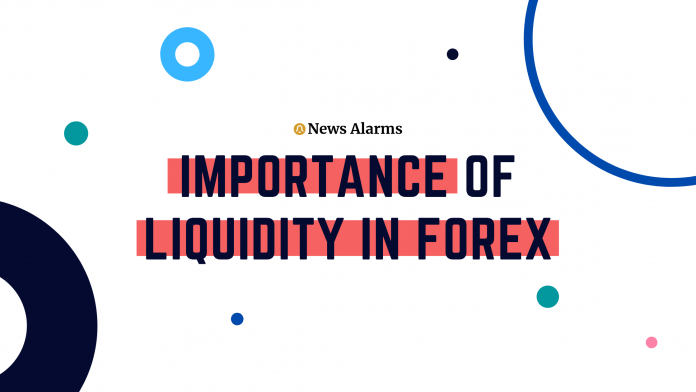Liquidity is now a significant factor since the distant past and keeps on to this day. A person, company, or country can be very rich but if they do not contain such liquidity or liquid assets then they can easily go bankrupt. Throughout financial crises (like the 2008 financial crisis) we frequently hear about liquidity or lack of it. A few well-known companies declared bankruptcy at the time because they did not contain sufficient liquid assets to pay off their clients or their creditors.
Greece is in a similar situation for almost five years and the extra liquidity given by the European Union is keeping the country afloat. In reality, Greece is currently going through a liquidity “famine” and if it does not get help from the European Union soon. It will be settled before the repayment of the IMF loan, which will officially bankrupt the country. Liquidity is an important factor in the Forex market. Here, we will explain below why this is so significant for every forex trader.
What is Liquidity?
Let’s start with an example: if there are 30 people in a classroom during an exam, but there is only one pen for all 30 people. How long will it take to complete the exam in the whole classroom? This pen will be in great demand because there are not sufficient pens to go here. In other words, we are facing a pen market without pens! You can define liquidity as the current demand for a service or product.
How much you are fast to sell your car and convert it into cash? In financial markets, when we refer to liquidity, we mean how rapidly and quickly a particular device can be converted into cash, electronically or physically. A few instruments are very liquid such as gold or short-term US bonds. Both can rapidly sell throughout the world if you agree to sell at a reasonable price.
A few of them are less liquid-like Greek bonds. Nobody desires to purchase them for fear that the country will declare bankruptcy. The investors will not capable of back their premium. The same is true for forex, a few currencies are more liquid than others, such as the USD, Euro, etc. While small or volatile currencies are less liquid as you are unable to use them somewhere other than the country of issue. Therefore, you are also unable to sell or exchange them for another instrument.
Signs of liquidity
Stock exchanges throughout the world are considered a fair market. So, it is very liquid, but it is not always the case. Amid most important events or off-hours, investors close their positions and the market turns into very unstable. There is a big difference in the stock market charts, as in the Facebook chart below. These gaps frequently happen when the exchange destinations are close and the liquidity dries up.
Price gaps caused by a lack of liquidity in the stock market
Although not as frequent in the stock market, there are sometimes gaps in the forex market. But the most general sign of illiquidity in the forex market is long candles that last a short time. One similar incident occurred on January 15 this year when the SNB (Swiss National Bank) removed the 1.20 peg held in EUR/CHF. The EUR/CHF and another Swiss franc (CHF) pairs fell over 40 cents a second as investors and electronic trading computers withdrew.
It is easy and simple for me to see from the EUR/CHF chart below that this pair was trading in a tight range for a long time and then collapsed in a minute.
A liquidity hole caused a massive drop in CHF pairs
All the contributors to the market add liquidity to this market. Separately, a few of the biggest names in the banking sector stand in the Forex market. They are known as Tier 1 liquidity providers and include Deutsche Bank, Citi, Morgan Stanley, HSBC, UBS, Bank of America, Barclays, Goldman Sachs, and others.
Retail trade has grown steadily and is a significant part of liquidity. Spot turnover is estimated at over 12% more. Brokers who act as dealing desks are part of it and do something as liquidity donors. They allow customers to purchase and sell currencies and can hedge their customers’ positions in the real market or internally.
The USD currency mostly used in trading. Now, most of the trading volume in the forex market comes from speculation. Some people say that it has over 90% share of the market. Most people around the world have come to appreciate the importance of speculators and what they add to the market.
China was the most recent to accept and introduce speculation to its financial markets. They had opened the door to speculation in their markets before a few years but decided to take them out again. Since the inception of trading of high frequency, the size of their market share has to be increased. They now play a key role in providing liquidity. Because they do millions of trades a day, they are ready to purchase or sell equipment at any time, thus providing liquidity.
Importance of liquidity to a Forex trader
With the exception of the Frankfurt Exchange floor that counts for only a very small percentage of foreign exchange, the forex market does not have any physical location. Currencies are bought and sold mainly between banks, electronically, hence the name ‘interbank market’. But there are other partners as well, like investment and hedge funds, pension funds, insurance companies, corporations, and so on.


